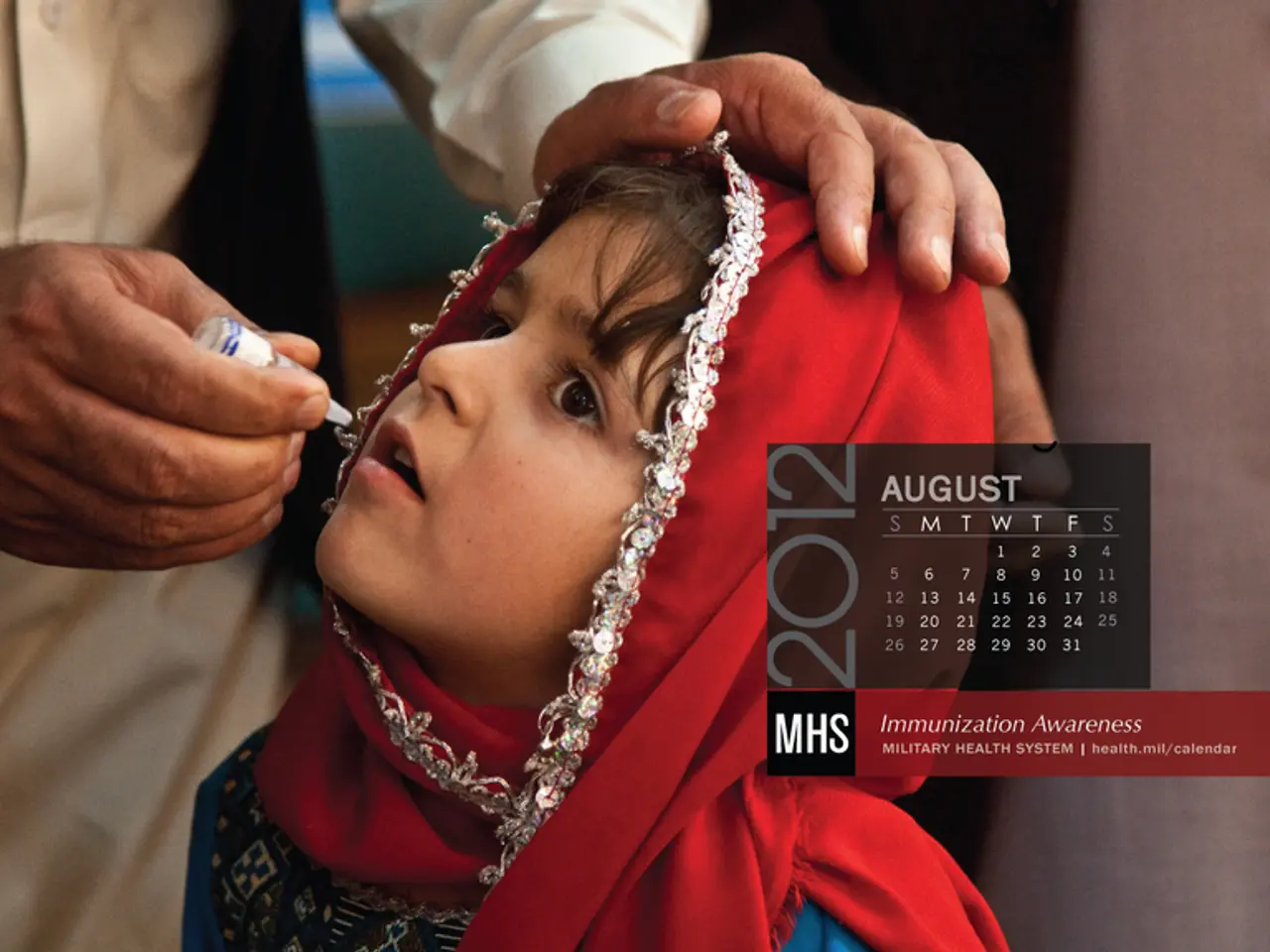Nationwide decrease in confirmed polio cases reported by NIH, however, interruption of virus transmission remains unachieved
Progress and Challenges in Pakistan's Polio Eradication Efforts
Pakistan's ongoing battle against polio continues to display a mix of progress and setbacks, with the virus still circulating in certain regions. The country remains one of the world's last strongholds for wild poliovirus (WPV1) transmission, sharing this status with Afghanistan.
After a significant decline to just one case in 2021 and six cases in 2023, there was a resurgence in 2024 with 74 reported WPV1 cases and at least 19 cases as of August 2025. This resurgence highlights the ongoing challenges in eradicating the virus.
Environmental surveillance has detected poliovirus in sewage samples across 20 districts, indicating continued circulation even where no clinical cases have been confirmed. The virus circulation is mainly concentrated in core reservoir areas and high-risk districts, such as Khyber Pakhtunkhwa (KP), Sindh, Punjab, Gilgit-Baltistan, and Balochistan.
In Khyber Pakhtunkhwa, the number of positive sites dropped from 14 in January to 7 in July. In contrast, Sindh saw a decline from 20 districts with positive detections in March to 12 in July. Punjab reported cases in districts like Mandi Bahauddin, while Balochistan recorded only one positive environmental surveillance site in July, a marked reduction from 15 in January.
The Pakistan Polio Eradication Programme continues to conduct mass vaccination campaigns, having delivered vaccines to over 45 million children in recent nationwide efforts. However, challenges persist, including vaccine refusals, militant attacks on vaccination teams, misinformation, and difficulties reaching mobile or displaced populations, particularly along the Afghanistan border.
High-level political commitment is strong, with direct involvement from the Prime Minister and health officials, and a newly launched three-phase National Polio Eradication Roadmap for 2025-2026 aimed at intensifying efforts and introducing innovative strategies beyond traditional approaches. Cross-border transmission risk due to population movement and undocumented migration between Pakistan and Afghanistan remains a concern, prompting coordinated vaccination efforts at border crossings and joint collaboration between the two countries' programmes.
As the next sub-national polio vaccination campaign prepares to run from September 1 to 7, authorities have urged parents and caregivers to ensure their children receive their drops. The campaign aims to vaccinate 28 million children across 91 districts in all provinces and regions.
In Azad Jammu and Kashmir and Gilgit-Baltistan, all samples tested so far this year have been negative. NIH emphasized that polio eradication remains a collective responsibility, calling on parents, communities, and local leaders to support vaccination teams, counter misinformation, and ensure every child receives every dose.
References:
- Polio Eradication Initiative
- World Health Organization
- Centers for Disease Control and Prevention
- National Institutes of Health
- Pakistan Polio Eradication Programme
- Maintaining a healthy environment is crucial in the eradication of polio, as science reveals that the viral strain detected in sewage samples plays a significant role in its continuation.
- The importance of nutrition and health-and-wellness in Pakistan extends beyond individual well-being, as a balanced diet and regular fitness-and-exercise can help foster a stronger immune system, potentially reducing the risk of polio and other diseases.
- The Nation's health will significantly benefit from the successful eradication of polio, as a polio-free Pakistan will not only improve the overall health environment but also contribute to global health efforts, demonstrating the strong commitment of health officials and the Prime Minister.




